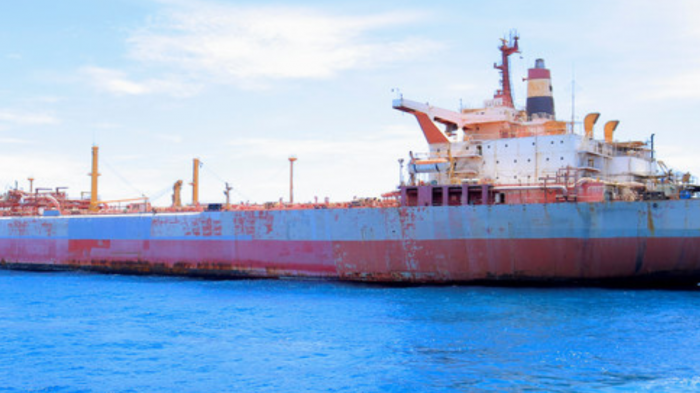The United Nations has started a operation to remove 1.1 million barrels of oil from a decaying supertanker moored off Yemen's Red Sea coast.
A salvage vessel with a crew of experts reached the FSO Safer on Tuesday.
They will undertake work to make it secure for oil to be transferred to another tanker, Nautica, which is due to sail from Djibouti next month.
There is an imminent risk that the Safer could explode or break apart, causing an environmental catastrophe.
The UN has so far raised $114m (£92m) to pay for the unprecedented project through donations from dozens of member states, private companies and even the general public through a crowdfunding campaign.
But it says another $29m is urgently required, including to safely moor the Nautica to an anchored loading buoy and tow the Safer to a recycling yard.
This article contains content provided by Twitter. We ask for your permission before anything is loaded, as they may be using cookies and other technologies. You may want to read Twitter’s cookie policy, external and privacy policy, external before accepting. To view this content choose ‘accept and continue’.
UN Development Programme Administrator Achim Steiner described the arrival at the site of the salvage support vessel Ndeavor, operated by Dutch company SMIT, as a "critical step" and a "proud moment".
He added that it was a "a prime example of the importance of prevention".
"Aside from a possible humanitarian and environmental catastrophe, funds spent now will prevent a disaster that could cost billions in the future."
The Safer was constructed as a supertanker in 1976 and converted later into a floating storage and offloading facility for oil. It is anchored near the Ras Isa oil terminal, which is controlled by Yemen's rebel Houthi movement.
Its structural integrity has deteriorated significantly since maintenance operations were suspended in 2015, when the Houthis seized large parts of Yemen and a Saudi-led coalition intervened in support of the Yemeni government. The ensuing war has reportedly killed more than 150,000 people and left 21 million others in need of aid.
The Safer holds four times the amount of oil spilled in the 1989 Exxon Valdez disaster, in Prince William Sound, Alaska.
The UN says a major spill in the Red Sea would destroy coral reefs, mangroves and other sea life, expose millions of people to highly polluted air, devastate fishing communities, force nearby ports to close and disrupt shipping through the Suez Canal.
It estimates that the cost of clean-up alone would be $20bn.
More about:
















































